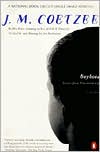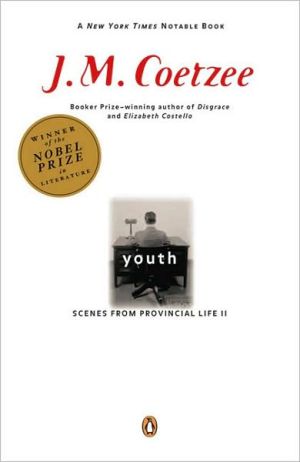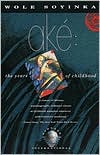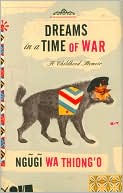Calamities of Exile: Three Nonfiction Novellas
The three narratives by Lawrence Weschler here joined together were conceived from the start as a sort of triptych: three tales about basically decent expatriates the first an Iraqi, the second a Czech, the third an Afrikaner, each of whom tries to do the right thing with regard to the totalitarian regime holding sway over his homeland - the thing we readers, too, might have done, if only we were much more courageous than we are - only to end up thoroughly wracked and bollixed.
Search in google:
From the author of Mr. Wilson's Cabinet of Wonder, Calamities of Exile combines three gripping narratives that afford a sort of double CAT scan into the natures of both modern totalitarianism and timeless exile."Beautiful but harrowing chronicles of three exiles that probe the moral and personal risks of their encounters with totalitarianism. . . . Piercing and timely."—Kirkus Reviews, starred review"Weschler . . . combines a novelist's gift for drama with the objectivity and research skills of a journalist. . . . The result is three gripping profiles of very human but also extraordinary men."—Publishers Weekly"[Weschler's] thorough accounting of the men's covert operations, assumed identities and strained relationships with fathers, wives, and colleagues creates a disturbing triptych of the perils of totalitarianism."—Lance Gould, New York Times Book Review"Weschler tells these three tragic tales with an admirable combination of psychological penetration, intellectual thrust, concision and compassion."—Francis King, Spectator"Endlessly absorbing. . . . Breathtaking."—Jeri Laber, Los Angeles Times Book Review The Los Angeles Times Book Review - Jeri Laber Weschler's keen insight, his tendency to wry understatement and his often unexpected choice of words make these tales endlessly absorbing. His writing can be breathtaking...seamlessly merges essay and storytelling. These stories, rooted in the depressing facts of contemporary politics, have the power and fascination of good fiction.
PrefaceOedipus in Samara: Kanan Makiya in and out of Iraq 19921The Trials of Jan K.: Jan Kavan in and out of Czechoslovakia 199263A Horrible Face, But One's Own: Breyten Breytenbach in and out of South Africa 1993137Index195
\ Jeri LaberWeschler's keen insight, his tendency to wry understatement and his often unexpected choice of words make these tales endlessly absorbing. His writing can be breathtaking...seamlessly merges essay and storytelling. These stories, rooted in the depressing facts of contemporary politics, have the power and fascination of good fiction.\ — The Los Angeles Times Book Review\ \ \ \ \ Kirkus ReviewsBeautiful but harrowing chronicles of three exiles that probe the moral and personal risks of their encounters with totalitarianism. Here are three tales about expatriates who attempt, with often disastrous results to themselves and their families, to oppose the totalitarian regimes of their homelands. A staff writer for the "New Yorker", Weschler ("Mr. Wilson's Cabinet of Wonder", 1995, etc.) brings characteristic style and intelligence to bear on his portrayal of the manner in which totalitarianism corrupts everyone, including its most steadfast opponents. Weschler has chosen "very edgy guys" whose quirkiness bolsters them in their defiance. Kanan Makiya adopted the pseudonym Samir al-Khalil for his books attacking Saddam Hussein's Iraq. Aside from his record of Iraqi state terror, Makiya also penned a critique of those artists who collaborated with Saddam's regime. Prominent among them was his own father, Mohammed Makiya, Iraq's foremost architect, whom he loves and, in many ways, respects. While family ties lie most obviously at the center of Makiya's conflicted feelings, Weschler demonstrates that opposition to a regime often results in fragmented families. Jan Kavan, a former student activist, spent two decades smuggling opposition materials in and out of Czechoslovakia, only to find himself, incredibly, accused of collaboration when he came home following the collapse of the Communist regime. Weschler describes the Kafkaesque situation, illuminating the difficulties raised by society's need to both forgive and to find someone to punish for its own failures. The final and most stunning of these narratives focuses on Afrikaner poet and painter Breyten Breytenbach. We follow hisjourney to exile, his foolhardy return to South Africa on a mission that gets him jailed, and his collapse while imprisoned. Breytenbach's poetry and comments are beautiful and penetrating, illuminating many of the painful issues activists face in exile. Piercing and timely essays that probe the profound ways in which modern totalitarianism "turned out to be evil in a confoundingly complicated way." \ \








